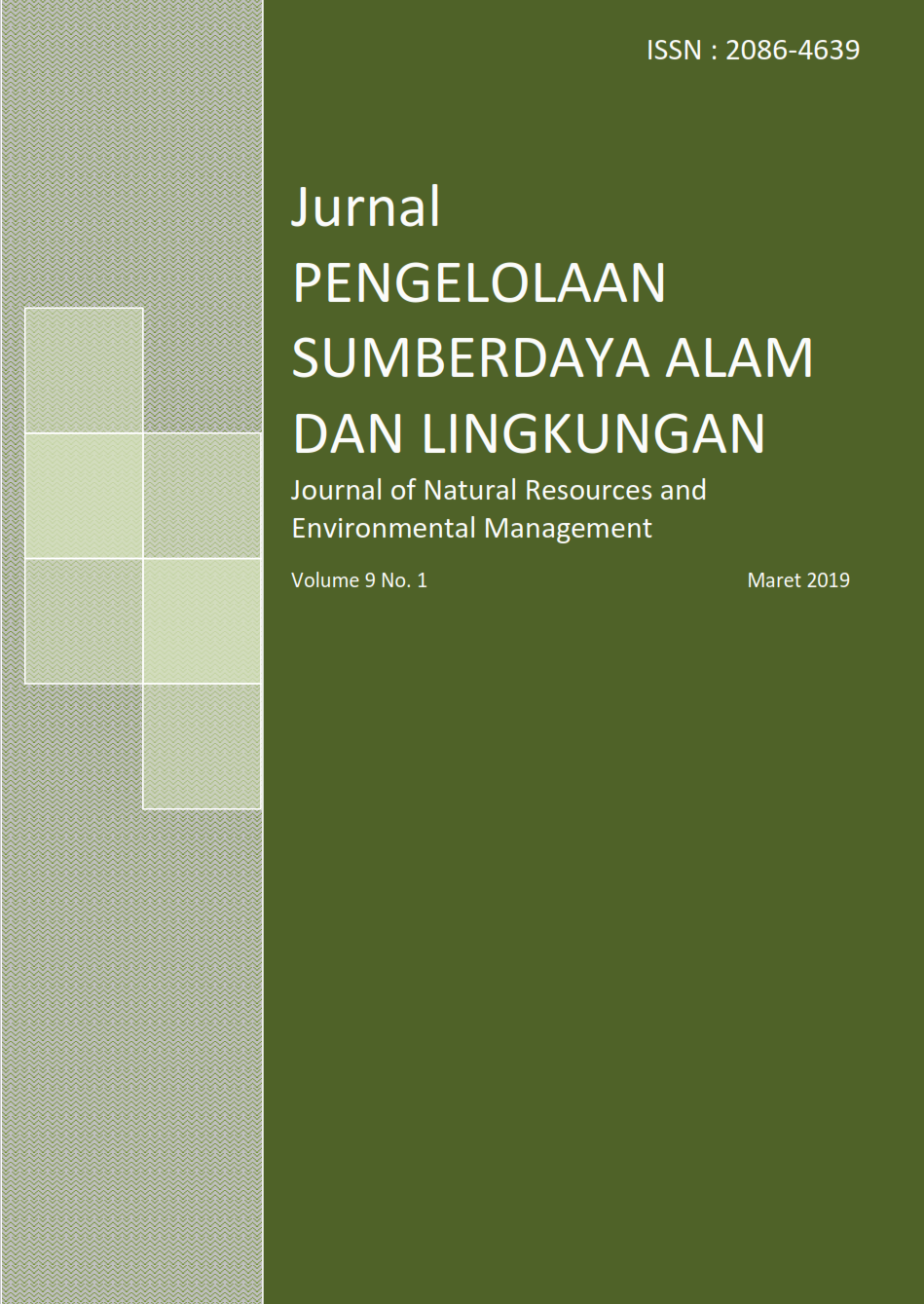The Practice of Discretion in Implementing Forest-Rehabilitation Policy in Forest Management Unit
Abstrak
Referensi
Astuti, S. J. A., 2009. Parameter diskresi birokratik: Studi kasus pemerintahan Kota Surabaya dan Kabupaten Situbondo. Jurnal Kebijakan dan Administrasi Publik 13 (1), pp. 31–50.
Barr, C., A. Dermawan, H. Purnomo, H. Komarudin, 2010. Financial Governance and Indonesia's Reforestation Fun During the Soeharto and Post-Soeharto Periods, 1989-2009: A Political Economic Analysis of Lessons for REDD+. CIFOR, Bogor.
Barr, C. M., J. A. Sayer, 2012. The political economy of reforestation and forest restoration in Asia–Pacific: Critical issues for REDD+. Biological Conservation 154, pp. 9–19.
Cifor, 1999. CIFOR Annual Report 1998. CIFOR, Bogor.
Creswell, J. W., 2013. Qualitative Inquiry and Research Design: Choosing Among Five Approaches. Sage Publications, Inc, California; London; New Delhi.
Damayanti, E. K., L. B. Prasetyo, H. Kartodihardjo, A. Purbawiyatna, 2013. Transitions to Sustainable Forest Management and Rehabilitation in the Asia Pacific Region: Indonesia Country Report. Faculty of Forestry, Bogor Agricultural University, Bogor.
Denzin, N. K., Y. S. Lincoln, 1997. Handbook of Qualilative Research: Second Edition. Sage Publications, Inc, London, New Delhi.
[Dephut] Departemen Kehutanan, 2008. Statistik Kehutanan Indonesia 2008. Departemen Kehutanan, Jakarta.
Dwiyana, R., 2008. Akuntabilitas Administrasi dan Hukum Atas Keputusan Administrasi Pejabat Pemerintah. UI Press, Jakarta.
Evans, A. 2006. Discretion and street-level bureaucracy theory: A case study of local authority social work. Disertasi. University of Warwick, School of Health and Social Studies, Warwick.
Evans, T., J. Harris, 2004. Street-level bureaucracy, social work and the (exaggerated) death of discretion. British Journal of Social Work 34, pp. 871–895.
Irawan, P., 2007. Penelitian Kualitatif dan Kuantitatif untuk Ilmu-Ilmu Sosial. Universitas Indonesia, Depok.
Kartodihardjo, H., 2006. Masalah kelembagaan dan arah kebijakan rehabilitasi hutan dan lahan. Jurnal Analisis Kebijakan Kehutanan 3 (1), pp. 29–41.
Kartodihardjo, H., 2014. Pengarusutamaan pada peraturan dan perundang-undangan kehutanan. Dalam: Sugiharto, editor. Strategi Pengembangan KPH dan Perubahan Struktur Kehutanan Indonesia. Direktorat Jenderal Planologi Kehutanan, Kementerian Lingkungan Hidup dan Kehutanan, Jakarta.
Kartodihardjo, H., A. Supriono, 2000. Dampak pembangunan sektoral terhadap konversi dan degradasi hutan alam: Kasus pembangunan HTI dan perkebunan di Indonesia. Occasional Paper, No.26 (1). CIFOR, Bogor.
Kartodihardjo, H., Hendrayanto, E. Cahyono, A. D. Bahri, 2014. Kesiapan daerah dalam pencegahan korupsi pada program penurunan emisi. Laporan Penelitian. Tranparency International Indonesia, Jakarta.
[Kemenhut] Kementerian Kehutanan, 2012. Data dan Informasi Kesatuan Pengelolaan Hutan (KPH) Tahun 2012. Direktorat Jenderal Planologi Kehutanan, Kementerian Kehutanan, Jakarta.
Klatt, M., J. Schmidt, 2012. Epistemic discretion in constitutional law. International Journal of Constitutional Law 10 (1), pp. 69–105.
[KLHK] Kementerian Lingkungan Hidup dan Kehutanan, 2016. Statistik Kementerian Lingkungan Hidup dan Kehutanan Tahun 2015. Kementerian Lingkungan Hidup dan Kehutanan, Jakarta.
Kuhn, T. S., 1962. The Structure of Scientific Revolutions. The University of Chicago, Chicago.
Lipsky, M.,1980. Street-level Bureaucracy: Dilemmas of the Individual in Public Services. Russell Sage Foundation, New York.
Permana, T. C. I., 2009. Pengujian keputusan diskresi oleh pengadilan tata usaha negara. Tesis. Program Magister Ilmu Hukum, Universitas Diponegoro, Semarang.
Ridwan, 2009. Diskresi (freies ermessen) oleh pejabat pemerintah rambu hukum, alat ukur keabsahan, dan kecermatan dalam penggunaannya. Jurnal Media Hukum 16 (3), pp. 439–461.
Ridwan, 2014. Diskresi dan Tanggung Jawab Pemerintah. FH UII Press, Yogyakarta.
Warassih, E., 2005. Pranata Hukum Sebuah Telaah Sosiologis. PT. Suryandaru Utama, Semarang.
Penulis
Authors who publish with this journal agree to the following terms:
- Authors retain copyright and grant the journal right of first publication with the work simultaneously licensed under a Creative Commons Attribution License that allows others to share the work with an acknowledgement of the work's authorship and initial publication in this journal.
- Authors are able to enter into separate, additional contractual arrangements for the non-exclusive distribution of the journal's published version of the work (e.g., post it to an institutional repository or publish it in a book), with an acknowledgement of its initial publication in this journal.
- Authors are permitted and encouraged to post their work online (e.g., in institutional repositories or on their website) prior to and during the submission process, as it can lead to productive exchanges, as well as earlier and greater citation of published work (See The Effect of Open Access).






